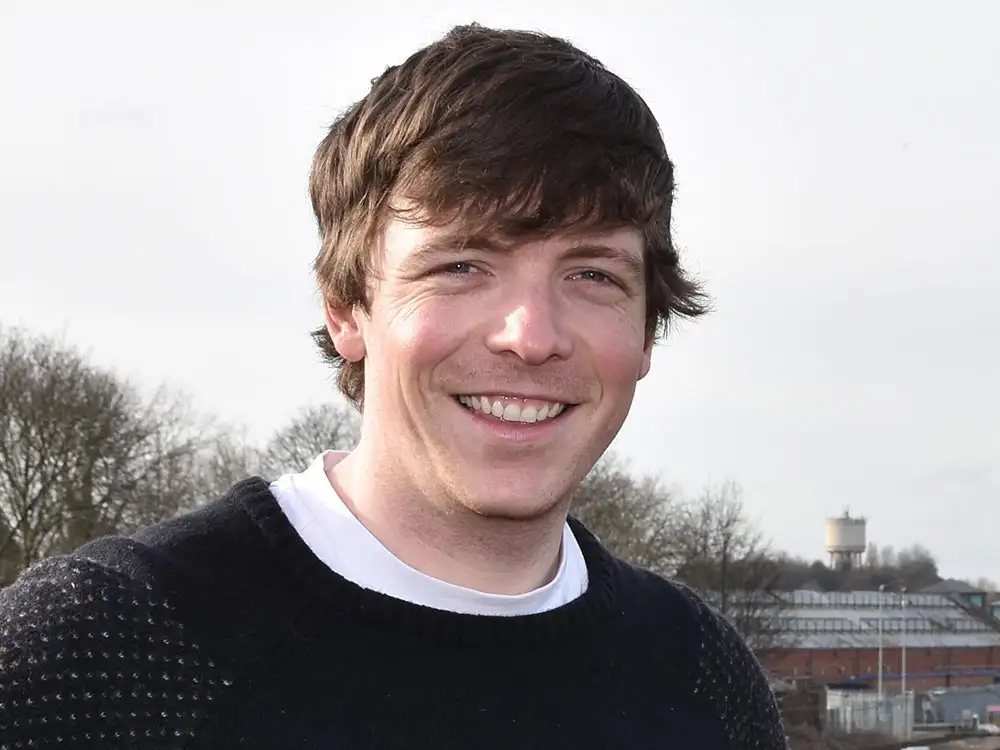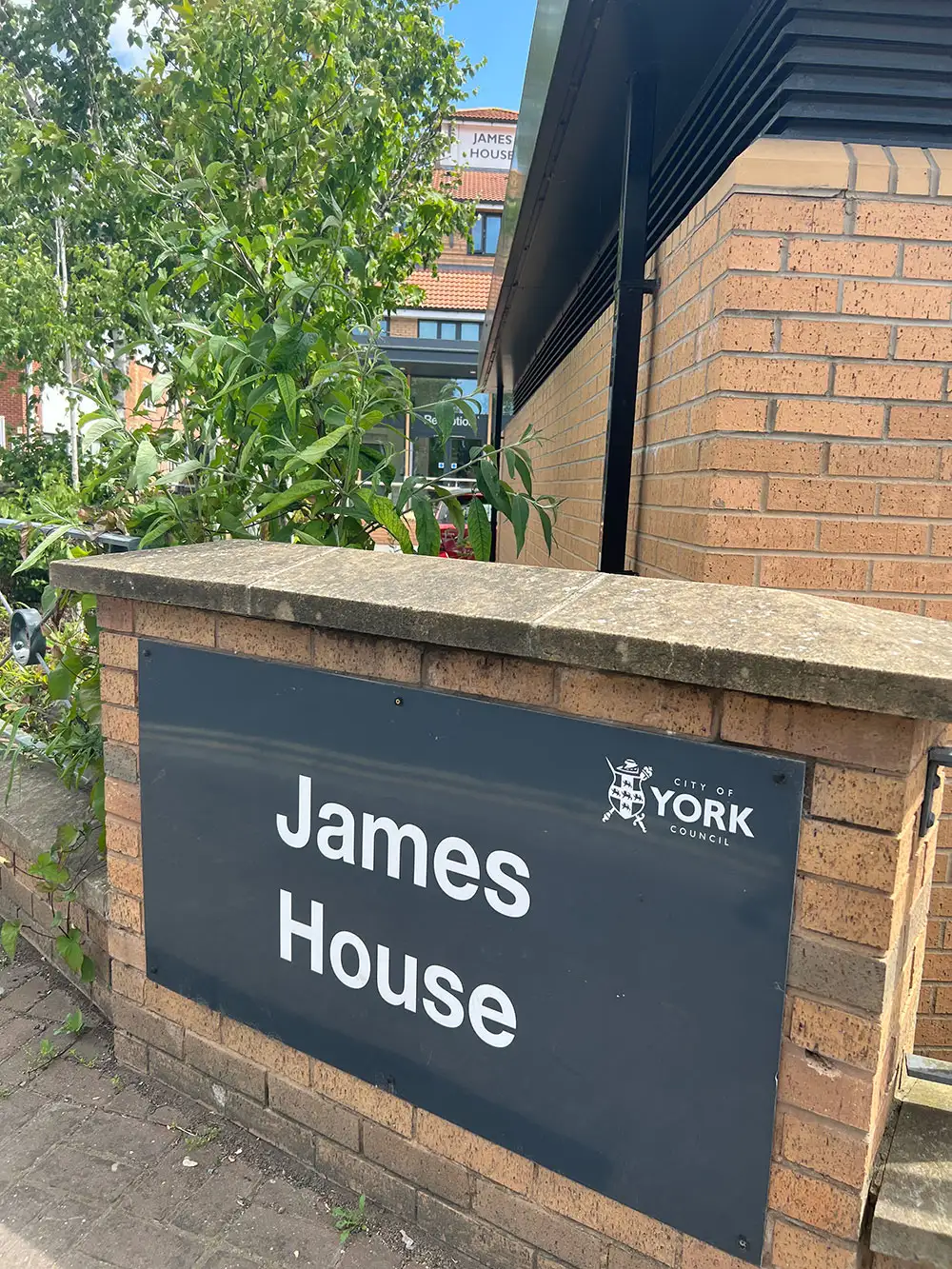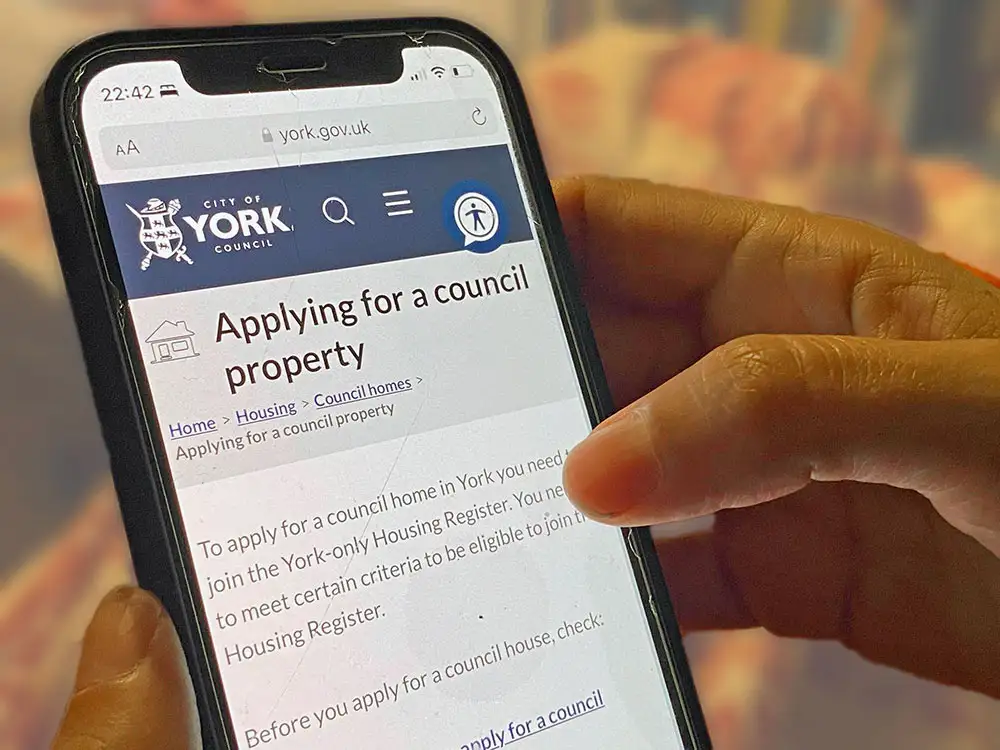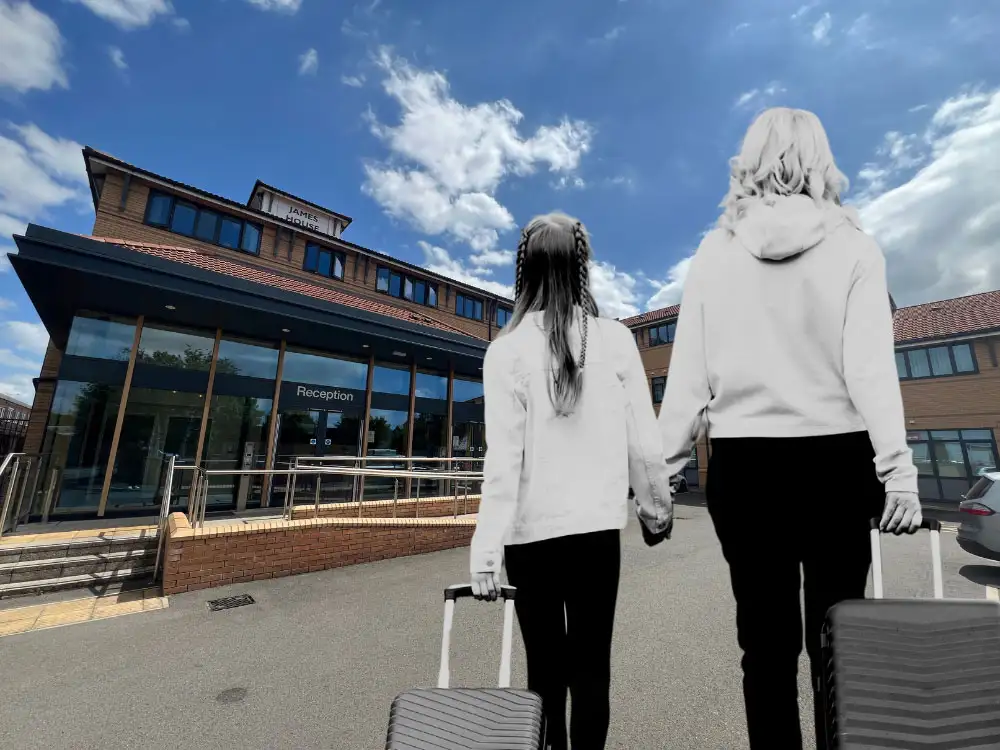In the first of a series of real-life stories from York, Charlotte tells us how she and her family were made homeless – and what the city should learn from her ordeal
It’s no secret that York has a housing emergency. You’ve probably heard the reports, read the headlines, and seen for yourself the soaring prices of renting or buying a room, flat or house in York.
Across the city, this is causing hardship. Many people have been forced out of the city by the high prices. At its sharpest end, the scandal causes homelessness.
A recent report confirmed that the number of York families forced into temporary accommodation by this broken system had soared by 24% in a year. Dozens of York families, hundreds of people, now know what it is to live without a home.
What must that feel like, and what must it demand of a family logistically and emotionally?
Charlotte can tell you.
Last summer, Charlotte was served with an eviction notice from her private landlord. She and her family had been living in the Leeman Road area for ten years, paying £695 a month at first, and then £850 a month more recently.
This is very low for York, because the property was not in a great state, but her landlord told Charlotte he wanted to sell the house. (As it happened, it went back on the rental market, with some minor work and at a higher price, a few weeks after she moved out).
Similarly-sized private rental properties nearby would cost £1,300 to £1,500 a month, more than Charlotte could possibly afford.
Charlotte says her landlord was amicable and quite patient, but he didn’t back down. In early October, Charlotte and her family moved into James House, a converted office block just off Lawrence Street, which is now temporary housing flats for families forced into homelessness.
So began the most difficult and stressful episode of Charlotte’s life.
Charlotte has come through it, but along the way she has gained insights and wisdom that highlight and humanise where the system could be improved. She wants to be heard, so other families might be spared what she had to go through.
This story is based on several meetings with Charlotte, before, during and after the time in which she was homeless.
Chapter 1: Becoming homeless. July to September 2023
“I got the letter from the landlord in July and I contacted the council housing department, asking for support and to go on the waiting list for a council-owned house. It took so long to be accepted on to the waiting list, which is really frustrating, and it’s been impossible to speak to anyone at the council.
“The interaction with the council has been crap. I’ve had to go through the local councillor to get stuff done. I’ve presented bank statements, electricity and gas bills, and the tenancy agreement but have had to do everything online. It’s ridiculous – you’re being made homeless but you cannot see a real person. It would be so much easier if I could have a face to face appointment.
“I’m moving to James House, maybe this week, maybe a bit longer. It would not be so bad if they were up front and honest about how long it is taking. The council website says you should be accepted on to their system in one to two weeks, but it’s been ten weeks for me. They should give the reality of the timeline.”
Charlotte said the Peasholme charity gave useful advice, and said her local councillor, Kallum Taylor, was helpful. She said an occupational therapist was also helpful, and the secondary school had helped her 15-year-old son with his anxiety issues. But she felt ‘the system’ at the council in general had been unhelpful during the spell when she was facing homelessness.

“It’s making people ill, because we do not know what’s happening. We do not know if we are coming or going. The flaw in the system is that they are not honest. I hope to move soon but it could be a few more weeks. We’re in limbo.”
Chapter 2: The system. October 2023
Charlotte and her family moved into James House in early October. She was told she would need a month’s rent ready to pay in advance when she did get a council house. She was also told she had to bid every week to stay on the system, but there are not always many houses to apply for, and demand is high. (Once, Charlotte was one of 66 people who applied for a house in Clifton.)
People are allocated a place on the housing waiting list, and when properties become available, people’s position on the list determines who is offered them first. Your place on the list depends on your circumstances. For instance families with young children are prioritised over most single adults.
When a house does become available, it could be anywhere in York. For Charlotte, that could have meant potentially far from her children’s schools, which could bring further expense and difficulties. For instance if the kids needed to get a bus to school, this would be costly. Charlotte says the children can get discounts, but wonders why buses are not free for children before 9am on schooldays, when children could only be travelling to school.
Charlotte’s principal frustration in October was still the lack of transparency about how long the process would take. She said there was the option of taking B&B accommodation, but the lack of cooking and laundry facilities would make family life very difficult and expensive.
She feels she has been persistent, but says: “This is the hardest process I’ve ever had to go through, and it’s so hard because I’m not the one managing it. I’m being pushed and pulled by a system. If you don’t pester, then you are just another number on paper.”
When asked what she would do if she were in charge of housing, Charlotte said: “I would be up front and honest about it taking 12 weeks. Nine times out of 10, people would appreciate the honesty.”
Looking more long-term, she said: “There are a lot of Airbnbs taking the city’s housing and a lot of student accommodation. There aren’t enough houses.”

Chapter 3: Inside James House. Conversation in March 2024
By March this year, Charlotte was through the worst. The family had moved into a new house in west York a few weeks earlier, but she was affected by what she had been through.
“I could not bid on new properties until I was actually in James House. Sometimes properties did not come up for weeks. You’re meant to be in James House for no more than 56 days but we were there from October to January. We were getting close to just being assigned a house through direct let, but then we found one just before that.
“James House was hard. The accommodation itself was good – it was clean and safe in the flats and you have a roof over your head. But there’s no communal space, there’s nowhere to meet people and have some company or a chat.
“People had to just gather outside if they wanted someone to talk to, or chat through Facebook. There’s also very little support at James House. I heard one worker say they weren’t there to be compassionate – but who is giving support then?
“There need to be people in James House who know the system and can help with questions, or where you can just meet someone else for a cuppa.
“The main thing for me is still about what happened before James House. They need to be honest with people about how long it’s all going to take. If it’s going to take months, say that. And you should be able to see someone face to face at the council when you’re becoming homeless.
“But we are secure now. We have a secure tenancy and if anything happens to me, it will automatically pass to my son when he is 18. So we have security now, after everything. The process was long with lots of waiting. It was a nightmare, but it’s nice to have the house at the end of it all. We managed, but I feel really sorry for people with difficult mental health, because it’s easy to not cope well.
“York Financial Assistance Scheme (YFAS) was also good for us, helping with white goods. They were really helpful.”

Chapter 4: Lessons and ideas for change. Conversation in April 2024
By Easter, Charlotte was more settled into her new home. There had been some snags, such as the former tenant having taken away some of the locks for the doors, but things had been resolved and she felt more at ease.
She had also been using her insight to try to change the system for the better, speaking to other families in similar situations, and working with local group Lived Insights, to collate ideas for what could be done better.
Before these conversations, nobody had asked Charlotte about her experiences of the system. Feedback is everywhere now… we’re asked for our feedback when we finish a Zoom call, have a parcel delivered, visit a shop or a cafe – but there is no feedback loop for families who have been through the ordeal of homelessness.
“It’s great that we now have a house but I still think it’s ridiculous that they couldn’t tell us any more than they did during the whole process. Being realistic and truthful would make such a difference.
“We were lucky, in that we had friends in York who could store some of our furniture. I’m feeling a lot better now, getting there slowly with it all.
“There are not enough houses in York for families. When you’re on the waiting list, there isn’t enough social housing to bid on. In York, some houses have been converted to Airbnbs or for student lets as well. There’s just not enough social housing.
[There has been growing concern over the amount of York’s housing stock being lost to short-term lets. VisitYork data from the winter shows there are now 2,106 Airbnb listings in York – up by 8% year on year, and up by 26% since before the pandemic.]
“When I spoke to other people at James House, a lot of them were saying the same as me: the council hadn’t been clear with them how long it would take, and people felt there was no compassion.
“These people are often going through the worst times of their lives, and it should not be like this for them. People feel ignored or feel they’re being told one thing, then another. If they were just more honest then yes, it would be hard, but we would know.
“In James House, being able to meet someone face to face would have made a big difference. You could speak to someone there and then and ask your questions.
“And there needs to be some sort of social space, where you can speak to people and just talk, even if that’s a charity or someone else coming in for people to talk to. We had family support but anyone without supportive family or friends people would struggle.
“I’m saying all this because I want it to be easier for other people who are going through it. We had some support but not everyone does. I feel more compassionate and empathetic now that I have been through this and having spoken to other people who have been through it. I was compassionate before but I understand it more now.”
At a glance lessons
- Within James House, Charlotte and others call for more recognition and support of the emotional struggle that homelessness brings, and for some form of communal space.
- Within the housing system Charlotte feels strongly there should be face to face interaction, and more clarity about what lies in store when for people becoming homeless.
- And, above all that, Charlotte and Lived Insights reiterate that York needs more affordable housing, particularly with many homes being lost to Airbnb and student let accommodation.
